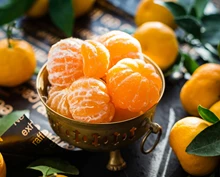
The Environmental Working Group (EWG) has published the 2022 Dirty Dozen, its annual list of the most pesticide-contaminated fresh fruits and vegetables. The Dirty Dozen is basically a high-profile annual list made by the Environmental Working Group. The list identifies the twelve “most pesticide-contaminated conventionally grown fruits & vegetables.”
Food Items Found To Be Most-Contaminated
Spinach and other leafy greens as well as strawberries are among the most contaminated ones. Following these food items are apples, grapes, and nectarines. Cherries, peaches, celery, cherries, tomatoes, and pears are some of the other food items to avoid.
Dirty Dozen list is made after the latest conclusive study by the Department of Agriculture and Food and Drug Administration. Pesticide pollutants have been discovered on more than 70% of non-organic yields evaluated by the FDA and USDA, highlighting an issue that has already been outlined during the last year's report. Nonetheless, the list is not an excuse to quit eating these food items.
An EWG Toxicologist stated that everyone should consume fruits and vegetables on a daily basis irrespective of the methods involved in growing them. He also added that every grocery buyer has the right to find out what adulterants are present in the food items that they are buying and consuming. They should be well aware of all the potentially toxic compounds present in the vegetables and fruits so that they can make optimal purchases in concern with their budgets, families, and other constraints.
In a recent study conducted by Harvard University, it was discovered that consuming vegetables and fruits with high amounts of pesticides and other toxic substances can lead to the risk of developing various cardiovascular conditions as well as early mortality.
Recommendations By EWG
The EWG issued an advisory stating that the consumers should opt for organically grown above-mentioned food items whenever feasible. Organic farming limits the usage of pesticides and other chemical fertilizers in crop production.











